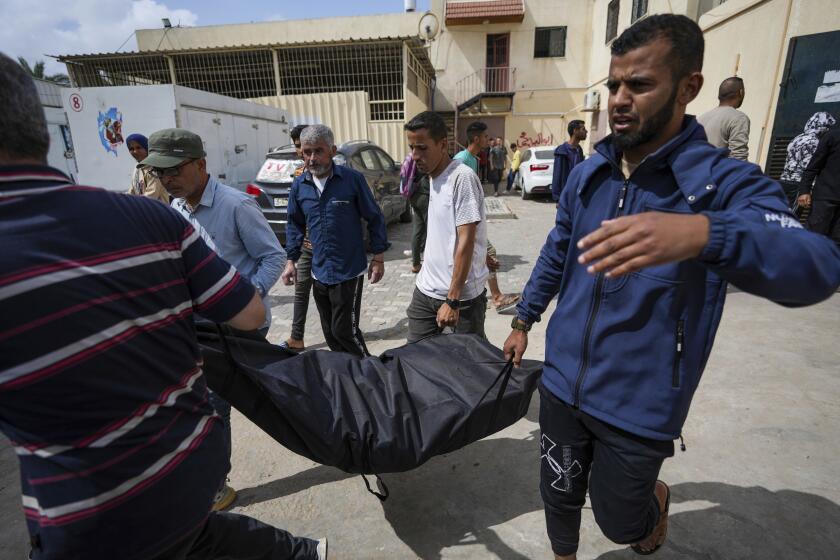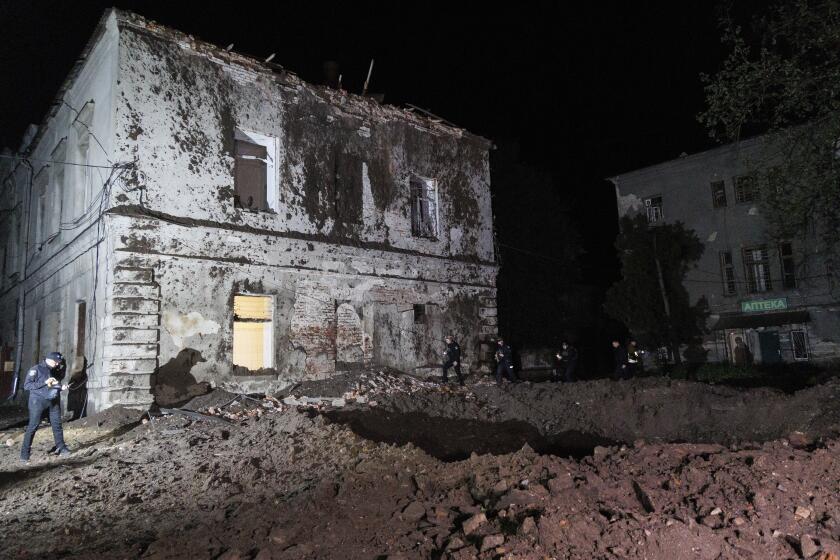Ayatollah Rafsanjani, Iranian opposition backer, loses clerical post
The Iranian opposition’s most powerful sympathizer lost his post Tuesday as chief of an important clerical council that oversees the country’s supreme leader.
Ayatollah Ali Akbar Hashemi Rafsanjani, a former president, was defeated in his bid to continue as head of the Assembly of Experts in what is widely considered a victory for his conservative rivals, President Mahmoud Ahmadinejad and supreme leader Ayatollah Ali Khamenei.
Ayatollah Mohammad Reza Mahdavi Kani, described as a more traditional conservative cleric, became leader of the clerical body, getting 63 of 86 votes.
Rafsanjani’s loss is the latest blow to an opposition movement that sent millions of protesters into the streets in 2009 but was struggling to regain momentum after being battered by Iranian security forces in the last 20 months. He withdrew his candidacy for reelection as head of the assembly after an intense media campaign against him by Ahmadinejad and his hard-line allies in government.
The Assembly of Experts has the power — in theory, at least — to appoint Iran’s supreme leader and oversee his performance. Assembly members are popularly elected but must be vetted by the ultra-conservative Council of Guardians before they are allowed to run for office. Hard-liners have been pushing for Rafsanjani’s removal as the assembly chief for some time.
“It shows the determination on an institutional level to marginalize him totally,” said Mahjoob Zweiri, an Iran expert at Qatar University. “It is an indication of the level of tension on the political scene in Iran. It’s a continual process of marginalizing, limiting the powers of others, trying to force them to leave.”
Rafsanjani, 76, considered by many to be a centrist, has drifted closer to the opposition in recent years. Some wonder whether he will openly defect to the opposition camp now that he has been all but pushed out of the ruling circle. He retains some power as chairman of the Expediency Council, a powerful board that mediates disputes between government bodies, but he is in danger of losing that seat when his term expires next year.
“The question is whether Mr. Rafsanjani will be the next dissident [cleric] or not,” said Ahmad Bakhshayesh, a political scientist in Tehran. “Mr. Rafsanjani is stuck. On the one hand, his whole family is with the so-called sedition. On the other hand, he himself has had to distance himself from the seditionists.”
Iran’s hard-liners deride members of the peaceful opposition movement as seditionists.
Rafsanjani lost to Ahmadinejad in a bitter 2005 presidential election marred by allegations of vote-rigging. Since becoming head of the assembly four years ago, Rafsanjani’s relations with Ahmadinejad’s government have frayed further, especially after the disputed 2009 presidential election, which opposition figures also rejected as broadly rigged.
Rafsanjani was accused of tacitly supporting opposition candidates through the vast semi-private Azad University network, controlled by his family. Soon after, he was banned from leading Friday prayers when he used the pulpit to criticize the government’s crackdown on postelection protests. Bakhshayesh predicted that Rafsanjani would soon lose control over the university’s board of trustees.
Some within the government maintain that Kani is close politically, personally and ideologically to Rafsanjani. On the other hand, Kani’s nephew is married to a daughter of Khamenei, and the supreme leader’s office urged Kani to nominate himself for leader of the assembly.
Special correspondents Mostaghim reported from Tehran and Lutz from Beirut. Times staff writer Borzou Daragahi in Tripoli, Libya, contributed to this report.
More to Read
Start your day right
Sign up for Essential California for news, features and recommendations from the L.A. Times and beyond in your inbox six days a week.
You may occasionally receive promotional content from the Los Angeles Times.






